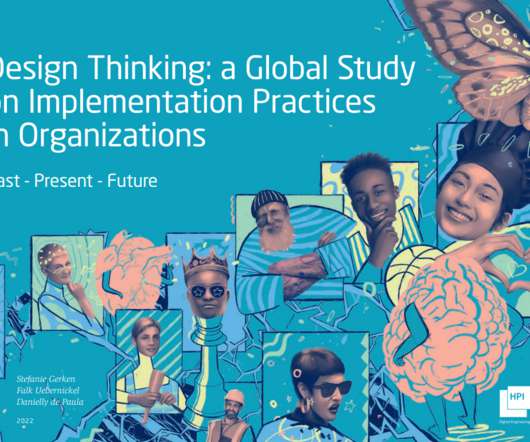Design Thinking: a Global Study on Implementation Practices in Organizations from HPI
InnovationTraining.org
JULY 12, 2022
In 2015, the Hasso Plattner Institute (HPI) and the Stanford Design Thinking Research Program conducted one of the most extensive global studies looking into the state of design thinking in organizations. Major insights and findings are outlined below in our blog analysis. The key questions.















Let's personalize your content